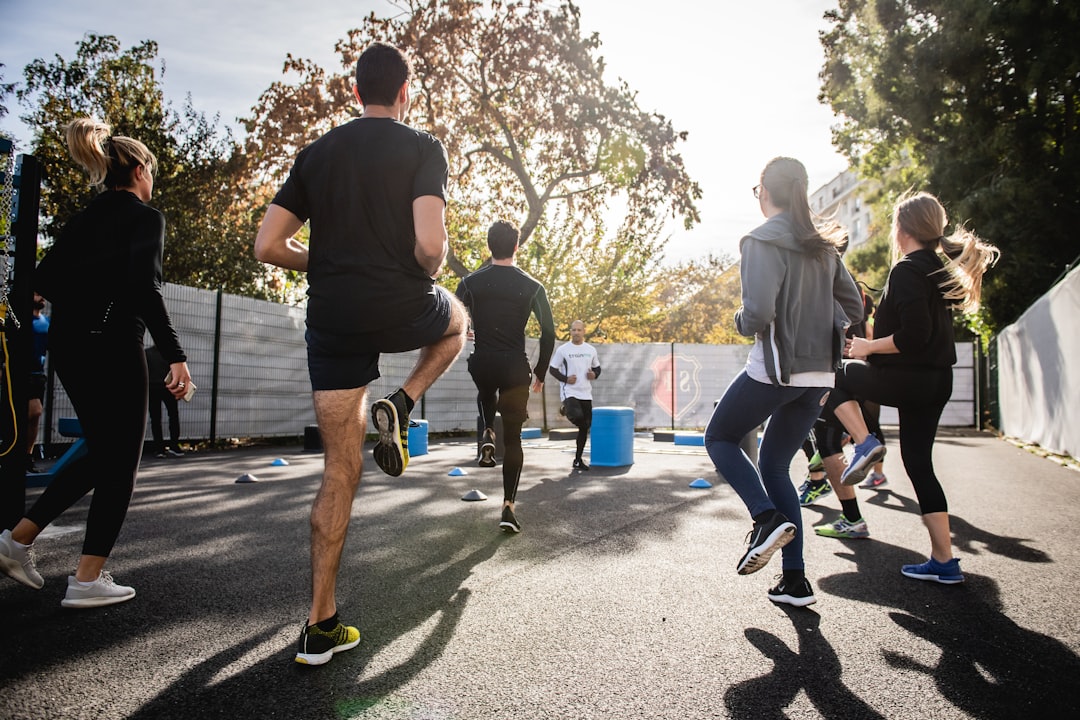5 Ways To Reduce Fat Without Dieting

Want to lose some fat without going on a strict diet? You’re not alone! Lots of people find dieting tough, and luckily, there are other ways to nudge your body toward a healthier shape. As a health and wellness enthusiast, I’ve explored several approaches that focus on lifestyle changes rather than restrictive eating. Let’s dive into five effective methods to help you reduce fat without dieting.

1. Prioritize Protein at Every Meal
Think of protein as your body’s best friend when it comes to fat loss. Protein helps you feel fuller for longer, which means you’re less likely to snack on unhealthy foods between meals. It also requires more energy for your body to digest, a process called the thermic effect of food. This means you burn a few extra calories just by eating protein!
Great sources of protein include lean meats like chicken and turkey, fish, eggs, beans, lentils, tofu, and Greek yogurt. Try to incorporate a serving of protein into every meal and snack. For example, start your day with scrambled eggs, add grilled chicken to your salad at lunch, and snack on a handful of almonds in the afternoon.
2. Sneak in More Sleep
Sleep might seem unrelated to fat loss, but it plays a huge role. When you’re sleep-deprived, your body produces more of the stress hormone cortisol. High cortisol levels can lead to increased fat storage, especially around your belly. Plus, lack of sleep can mess with your hunger hormones, making you crave sugary and fatty foods.
Aim for 7-9 hours of quality sleep each night. Create a relaxing bedtime routine to wind down before sleep. This could include taking a warm bath, reading a book, or listening to calming music. Make sure your bedroom is dark, quiet, and cool to create the perfect sleep environment. Consistency is key – try to go to bed and wake up around the same time each day, even on weekends.
3. Embrace Mindful Eating
Mindful eating is all about paying attention to your food and your body’s hunger cues. It’s the opposite of eating on autopilot while watching TV or scrolling through your phone. When you eat mindfully, you’re more likely to savor your food, eat slowly, and stop when you’re truly full.
To practice mindful eating, start by putting away distractions during meals. Take a few deep breaths before you start eating and notice the colors, textures, and aromas of your food. Chew each bite thoroughly and pay attention to how it tastes. Ask yourself if you’re truly hungry or if you’re eating out of boredom or stress. Stop eating when you feel satisfied, not stuffed.
4. Pump Up the Volume with Vegetables
Vegetables are naturally low in calories and high in fiber, making them a fantastic addition to any fat-loss strategy. Fiber helps you feel full and satisfied, which can reduce your overall calorie intake. Plus, vegetables are packed with vitamins, minerals, and antioxidants that are essential for good health.
Load up your plate with non-starchy vegetables like broccoli, spinach, bell peppers, cucumbers, and zucchini. You can add them to salads, stir-fries, soups, and omelets. Try to fill half your plate with vegetables at every meal. Roasted vegetables make a delicious and satisfying side dish, and they’re easy to prepare.
5. Get Moving (and Make it Fun!)
You don’t have to spend hours at the gym to see results. Finding ways to incorporate more movement into your daily life can make a big difference in your fat-loss journey. The key is to find activities you enjoy, so you’re more likely to stick with them long-term.
Think beyond traditional workouts. Dance to your favorite music, go for a brisk walk in the park, take the stairs instead of the elevator, or try a new sport. Aim for at least 30 minutes of moderate-intensity exercise most days of the week. This could include anything that gets your heart rate up, like jogging, swimming, cycling, or even gardening. High-intensity interval training (HIIT) is another great option – it involves short bursts of intense exercise followed by brief recovery periods. HIIT workouts are quick, effective, and can be done anywhere without equipment.
Frequently Asked Questions
Is it possible to lose a significant amount of fat without dieting?
Yes, it’s definitely possible, although the rate of fat loss might be slower compared to following a strict diet. The key is to make sustainable lifestyle changes that you can stick with long-term. These small changes add up over time and can lead to significant results.
How long does it take to see results from these methods?
It varies from person to person, depending on factors like your starting weight, metabolism, and activity level. You might start to notice small changes within a few weeks, such as feeling more energetic or fitting into your clothes a little better. Be patient and consistent, and you’ll eventually see more noticeable results.
Are there any potential downsides to losing fat without dieting?
The biggest downside is that it might take longer to see results compared to dieting. Also, it can be challenging to make these lifestyle changes if you’re surrounded by unhealthy food choices or have a busy schedule. However, the benefits of sustainable lifestyle changes far outweigh the potential drawbacks.
What if I’m not sure where to start?
Start with one or two changes at a time. For example, focus on increasing your protein intake for a week, and then add another change the following week, such as prioritizing sleep. Don’t try to do too much at once, or you might get overwhelmed and give up. Small, gradual changes are more likely to become habits.
Can I combine these methods with other healthy habits?
Absolutely! These methods work even better when combined with other healthy habits, such as drinking plenty of water, managing stress, and limiting processed foods. The more healthy habits you incorporate into your life, the better your overall results will be.
Losing fat without dieting is all about making small, sustainable changes that fit into your lifestyle. By prioritizing protein, getting enough sleep, practicing mindful eating, loading up on vegetables, and getting active, you can gradually reduce your body fat and improve your overall health. Remember, it’s a journey, not a race. Be patient, be consistent, and celebrate your progress along the way!



